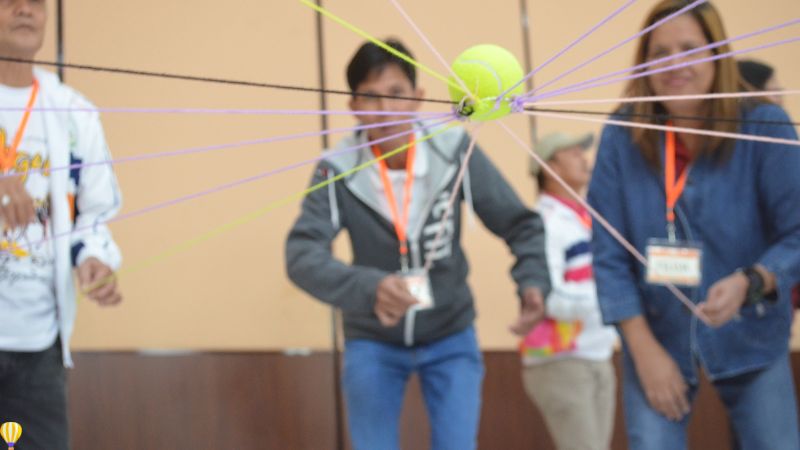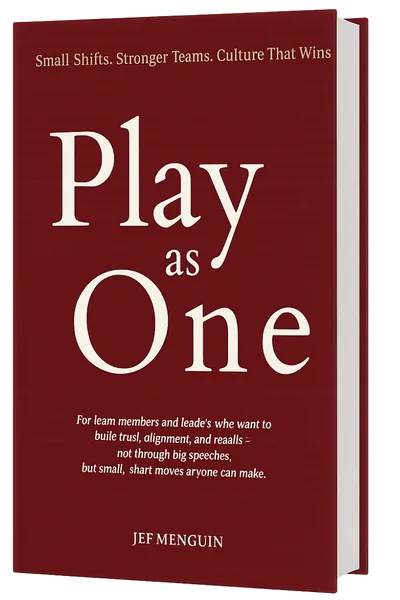You can find many ideas on how to build a successful team. You can get inspiration from sports teams and great athletes. There is no single formula, but each may help you somehow.
One way I know is to consider team building as a strategy. You put them together because doing so will produce more than the sum of their individual results.
Another way is to consider team building as an intervention. You look into its components like mindset, attitude, and competencies. Then, you identify the areas of improvement where you can make the most impact.
10 Competencies Plus Trust
When designing team-building programs, we at Team Bayanihan ask for the objectives of our prospective clients. So, naturally, most of them wanted to have fun.
They are often surprised to know that instead of me selling them packages for team building I asked for their objectives and goals. Most have not thought that team building can solve team challenges.
When discussing objectives, opportunities, and goals, I present what’s in my mind. These ten building blocks can help us design learning experiences that build teams.
Clear Goals
The first building block of successful teams is clear goals. A team needs to have a shared vision and mission. Without this common understanding, it’s hard for the whole group to work together effectively—and even more challenging when competing against each other to achieve their individual goals!
Defined Roles
Defining roles is an essential part of any team. It enables clear communication, leads to better decision-making, and ensures that everyone on the team knows what they are responsible for.
The best way to define roles is in advance so everyone can make commitments and expectations clear at the beginning of a project or task.
Defined roles help with accountability—if someone doesn’t know what they’re supposed to deliver, they won’t be able to report back accurately if something goes wrong later on!
Roles should be defined clearly and unambiguously so there’s no confusion about who does what or how it should be done; this means writing down exactly how tasks will be divided between people (or teams) before beginning work on them yourself!
Consider making flexible boundaries within those roles, so there’s room for change as necessary without affecting existing systems negatively.”
Open Communication
Open communication is essential to team building to help you build trust and camaraderie.
Suppose your team needs to be more open with one another. In that case, it’s likely because members need to communicate better, which could cost team members their productivity, happiness, and overall project success.
For your team members’ ideas to get heard and understood by others (or even outside of it), they need a way of talking openly about what they want from their work environment or project itself so that everyone can understand where each person stands on an issue.
Quality Decision Making
Quality decision-making is a skill, a mindset, and a process. It’s a way of thinking and being you can master through time and practice.
Know what quality means to you—and how your team members feel about it. What do they want from their work? How can we make our team more productive as individuals and as part of the whole?
Create an environment where everyone feels comfortable asking questions; everyone has access to information; everyone feels heard when they speak up; there are no barriers between individual contributions or ideas (or any other type); there are no barriers between departments within the organization.
Conflict Management
Conflict management is a skill. It’s not just about putting up with conflict or managing it but about doing something about it.
Conflict management is a process: before you can start resolving problems, you must first recognize that they exist—and this recognition comes from your team members’ observations of one another, not from any other source.
Conflict management is a team effort; it takes all members of the team (not just leaders) working together for everyone’s needs for cooperation and collaboration to be met equally across different levels within the organization or multiple organizations working together toward common goals.
Embracing Diversity
The most important thing you can do as a team member is to ensure everyone feels welcome and comfortable. Embracing diversity means that everyone has an opportunity to contribute and be heard, regardless of their background or position on the team.
I like to consider this as “being respectful” of each member.
Balanced Participation
Most people know the importance of being a team player, but only some understand how to achieve it.
By learning more about yourself and your teammates, you can become an effective contributor to any team.
A successful team promotes balanced participation. You don’t give all the dirty work to new members or to the youngest person on your team. You don’t give all the work to the most “reliable” person and allow others to look around.
Collaboration
Collaboration is a process of working together to achieve a common goal. You can have a lot of different individuals working on the same project, but it will only be effective if they understand each other’s roles and responsibilities.
Collaboration isn’t just about working together—it’s also about understanding each other’s roles and responsibilities as part of your team so that everyone knows what needs to be done in their roles.
This will ensure that everyone knows how they’re contributing towards achieving success!
Positive Atmosphere
The most critical building block of teams is a positive atmosphere. A positive atmosphere is created by good communication, sharing ideas, listening to others, and being open to feedback.
Good communication helps create a positive team environment because it shows that everyone cares about each other’s well-being.
If you don’t feel like you can talk freely with your teammates without worrying about hurting their feelings or making them uncomfortable, then it’s time for you to find a new job!
Sharing ideas also helps create a sense of belonging within the group because all members can contribute their thoughts and opinions while working together toward common goals. This makes everyone feel valued as part of one team rather than just another cog in an impersonal machine—and that alone can make all the difference between success and failure!
Participative Leadership
Leadership is a lot more than just authority. Leadership is about inspiring people to do their best, building trust and respect within a team, setting an example for others to follow, and providing resources that enable others to achieve their goals.
Suppose you’re leading a team or organization in the 21st century. In that case, you must understand what it means to be a participative leader—and how this type of leadership can help your organization succeed on all levels.
Building a successful team takes more than just good people.
Building a successful team is a process, not an event. It’s important to remember that no two teams are alike, and every team has unique needs, challenges, and goals.
Building successful teams should start with the right people in the first place—and that means finding people willing to work together as part of one larger whole rather than split apart into multiple competing entities.
You also need to ensure everyone understands their role on the team so they can perform at their best each day.
Lastly, you need processes in place so everyone knows what’s expected of them at all times.
How about trust?
Trust a two-way street. You need to trust that the team will work together, and fellow team members must trust that you will keep them on track.
Many teams fail because team members do not trust each other. They do not share their ideas because they do not want to be vulnerable.
Trust is the glue that binds all the building blocks.
These ten building blocks, plus trust, can help you build successful teams. You can work on each one. A team-building consultant from Team Bayanihan can help you.



